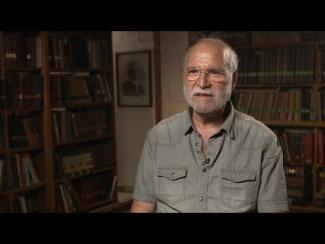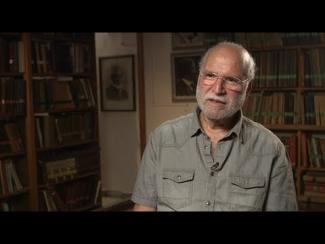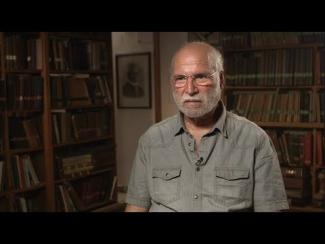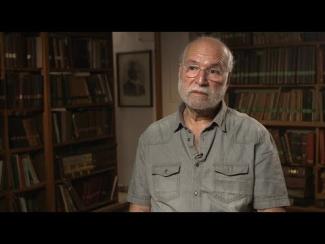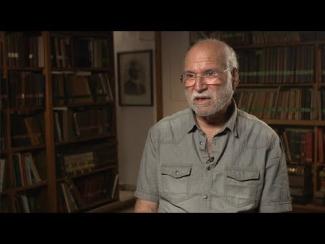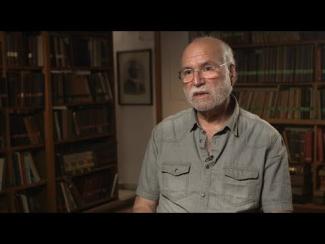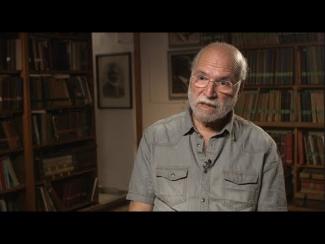The Yiddish Book Center's
Wexler Oral History Project
A growing collection of in-depth interviews with people of all ages and backgrounds, whose stories about the legacy and changing nature of Yiddish language and culture offer a rich and complex chronicle of Jewish identity.
Ze'ev Tsanin's Oral History
Ze'ev Tsanin, son of Yiddish writer, journalist, and activist Mordkhe Tsanin, was interviewed by Christa Whitney on June 18, 2014 in Tel Aviv, Israel. David's father grew up in a rural area of Poland and was a member of the Bund. His mother was also from Poland, from a wealthy family. The two, not yet married, came via separate routes from Poland to Israel right before the war. His father came via India and Japan. Much of his mother's family was murdered by the Nazis and she was loathe to talk about that place and time. Ze'ev's father was mostly self-taught. He was totally secular and worked as a journalist in Poland, starting at a young age. He was a handsome, well-dressed man and his attractive, kind personality drew people to him. Paradoxically, Ze'ev's father was a crusader for Yiddish in Israel, but did not teach his son Yiddish. He saw Hebrew as his entrée into acceptance as a true Israeli. Mordkhe put a lot of the blame on Ben-Gurion for the prevailing attitudes toward Yiddish. He produced and published a Yiddish newspaper for many years. At one point, he was not allowed to buy paper on the free market or to publish the newsletter daily, so he alternated the name of the paper each day to circumvent the censorship. Ze'ev felt a little bit like an outsider among the Yiddish speakers who congregated at his parents' house. There were lots of books and cultural activities. He recalls meeting Sutzkever and Isaac Bashevis Singer, among other famous writers. Besides his writings, Mordkhe's other major accomplishment was the Leyvik House in Tel Aviv, which was a center for Yiddish culture in Israel. It had a large library and sponsored lectures and plays. Ze'ev is distressed that it is not as vibrant and active as it was during his father's tenure there. Most of his father's books have not been translated into Hebrew, so Ze'ev has not read them. They were historical books or novels with titles such as "A Saga of the Wandering Jew throughout Jewish History." Ze'ev states that his parents transmitted their socialist values to him, and he still lives by them today. His father did not care about material things; one of the projects that brought him joy involved reuniting Holocaust survivors with family members. He disapproved of many Israeli policies and was "anti-regime", as Ze'ev is today. Mordkhe was pessimistic about the future of Yiddish and Ze'ev agrees that it can no longer be considered a living language. It is mostly used by the ultra-Orthodox and studied in academic settings; he is afraid it will become a non-living language such as Sanskrit.
This interview was conducted in English.

